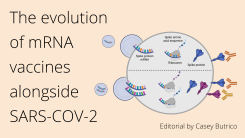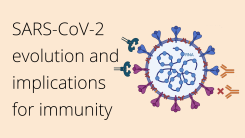Spotlight: Caitlin Murdoch, Ph.D.
Caitlin Murdoch Ph.D. is a postdoctoral fellow in the Eric Skaar lab in the department of Pathology, Microbiology and Immunology.
Caitlin grew up on Merritt Island, a barrier island on Florida’s Space Coast. After receiving her B.S. in Microbiology from the University of Florida, she moved to Durham, NC to pursue graduate studies at Duke University. There, she earned her PhD in Molecular Genetics and Microbiology in the lab of Dr. John Rawls. For her dissertation, she used zebrafish to study mechanisms by which the microbiota shape the development of the innate immune system. In the Skaar lab, Caitlin continues to use gnotobiotic zebrafish as a model to investigate the impact of metals on shaping inter-bacterial interactions in the intestine.....Click the image on the left to continue reading.









